- Stay Connected
 Abraham Lincoln
If given the truth, the people can be depended upon to meet any national crisis...
Abraham Lincoln
If given the truth, the people can be depended upon to meet any national crisis...
 Guildford news...
for Guildford people, brought to you by Guildford reporters - Guildford's own news service
Guildford news...
for Guildford people, brought to you by Guildford reporters - Guildford's own news service
The Eagle Eye: An American Bird in West Horsley
Published on: 14 Nov, 2012
Updated on: 23 Nov, 2012
A view of Guildford life through an American (Eagle) eye. You might be surprised, you might be amused, you might be horrified. See Mary Ellen’s Anglo-American Experience Blog at http://mefoley.wordpress.com
On my first Thanksgiving in the UK, I turned on the telly (which I stilled called the TV) for entertainment while I put the kitchen to rights, and happened across Countdown.
Richard Whiteley still hosted the programme back then, and that day, chatting to Carol Vorderman, he wondered what Thanksgiving dinner might be like. In a bored, everybody-knows-that tone, she told him “Oh, it’s just like Christmas dinner. They have turkey with stuffing…roast potatoes…Brussels sprouts…chipolatas…”
Chipolatas? I’d never heard the word. I had no idea what they were. And Thanksgiving dinner really isn’t just like a British Christmas dinner. And it isn’t even on the day you might think it is (one Surrey news website [click here to view] at the moment is declaring that “November 25th is traditionally the day Thanksgiving is celebrated in America”—er, no.).
Of course, there’s no reason why British people should understand about American Thanksgiving—but this year, I spoke to a Briton who really gets it: Derek Joy of Bramble Farm [http://www.bramblefarm.co.uk/].
Mr Joy’s family has been raising poultry since 1930, and at last count had 18,000 turkeys, reared in small groups and allowed to roam on two properties near West Horsley.
Turkeys aren’t native to West Horsley, of course; they come originally from the new world. Benjamin Franklin thought [http://www.greatseal.com/symbols/turkey.html] the turkey would be a better symbol for his new country than the eagle, in large part because bald eagles can hunt but prefer to wait for other birds to get hold of something to eat, and then steal it from them. (In technical terms, eagles are kleptoparasitic, which hardly enhances the reputation of the USA.)
The turkey, wrote Franklin, is not only a native of North America, but it is “though a little vain & silly, a Bird of Courage, and would not hesitate to attack a Grenadier of the British Guards who should presume to invade his Farm Yard with a red Coat on”. At which point I should perhaps leave Mr Franklin and his American turkeys, apologize to the Grenadier Guards, and turn back to British birds.
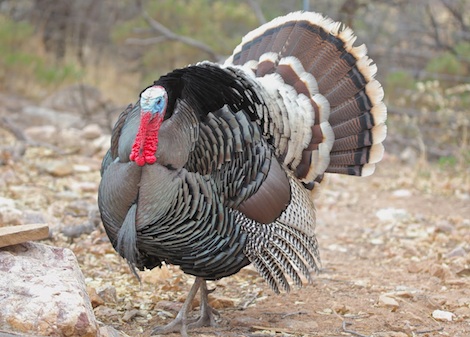
Vain, silly but a bird of courage – according to Benjamin Franklin. You can see on this turkey in the wild his “beard”, a plume of feathers only the male—called a tom or a gobbler—has. This fellow is displaying his plumage in a courtship ritual, sometimes also striking the ground with his wings and dragging them to make a lot of noise to impress the ladies.- Photo courtesy Ash Canyon B&B, Hereford, Arizona
I’d never heard that turkeys were vain, but they do have the reputation of being… well, stupid—another mark against them in the stakes for National Symbol—so I put the question to Mr Joy, who laughed and told me they are “uniquely dim, but very interesting”. It seems that, having come from a climate with hot weather in the spring, turkeys have to be coddled when young, so he keeps young ones in heated quarters, but since their native climate also has severe winters, turkeys can tolerate the coldest weather the British Isles can throw at them.
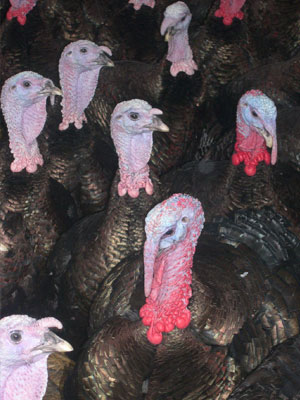
Bramble Farm Turkeys in hot debate, “Forget Obama! Would you vote for Thanksgiving or Christmas?” – Photo courtesy Bramble Farm
And he told me that while it’s true, as I’d always heard in the US, that turkeys have been over bred for a large breast (so as to provide more white meat) to the point that they can’t reproduce without human help, that’s not the case for Mr Joy’s flock. He raises a traditional breed, which doesn’t grow as quickly or as big, but enjoys a more natural way of life and produces a more natural product for the market.
You’d be right in thinking Christmas is a much bigger market, but Bramble Farm sells about one-third as many turkeys at Thanksgiving as they do at Christmas. There’s a growing market among British people who host Thanksgiving dinners for their American neighbours and work colleagues.
Those customers understand, as Mr Joy said, “how important Thanksgiving is” as “a real family thing, family and friends”, and in the spirit of British hospitality—and if there are any people on this planet more hospitable than the British, I haven’t run across them—they’re going out of their way to put on a Thanksgiving feast for Americans who can’t get back to their families for the holiday. And many Americans do go back: in the US, the busiest season for airline flights each year isn’t Christmas—it’s Thanksgiving.
So what do we do at Thanksgiving? We count our blessings and we feast! On roast turkey, usually with cranberry sauce, but not roast potatoes (which aren’t very common in the US). And which green vegetable you serve is up to you; nobody particularly expects Brussels sprouts (nor do Americans generally call them just “sprouts”). They will expect sweet potatoes, though, mashed or sliced into chunks and baked, often sweetened and sometimes topped with broiled (UK: grilled) marshmallows. You scatter white marshmallows (I’d never seen pink marshmallows until I came to the UK) over the sweet potatoes and brown them under the grill (US: broiler). I say “you” do it that way, but I don’t; I don’t care for sticky topping on my vegetables.
And sometimes—especially if there are schoolchildren around—there might be Thanksgiving songs. The best-known starts:
Over the river and through the wood
To grandmother’s house we go!
The horse knows the way to carry the sleigh
O’er the white and drifting snow…
…and ends:
“Hurrah for the pumpkin pie!”
Pumpkin pie is as important as the turkey, if not more so. Pumpkin pie must be on the menu, though all the other traditional trimmings can vary from region to region—I understand that on the east coast they put oysters in the stuffing, and some people add bacon, but I’ve never run across British-style stuffing, heavy with sausage, in the US.
In the south-east you’re likely to find stuffing based on cornbread; by the time I grew up and had to cook Thanksgiving dinner myself, I lived near San Francisco and based the stuffing on San Francisco sourdough (and I lived in a farmhouse there, on what used to be a walnut farm, so I add walnuts).
I grew up with a Southern dressing—not stuffing, we didn’t stuff the turkey, but had the stuffing-like mixture separately as a side dish and called it dressing—made to my grandmother’s recipe. She came from down on the Gulf coast near New Orleans, and made a cornbread dressing as hard as a rock; you had to have gravy to soften the dressing to make it edible, even though I didn’t like the traditional gravy from her part of the country, either: very thin stuff that carried lots of little chunks of diced giblets, and diced boiled egg. Yes, boiled egg. I…wasn’t sad to let that tradition go.
Pumpkin pie, on the other hand, is a tradition worth keeping. Pureed pumpkin, evaporated milk and sugar, spiced with cinnamon, ginger, and nutmeg. I’ve had British guests who declined to even try it; I suppose the orange-brown stuff in the crust might look a bit odd to the uninitiated, but I just can’t understand why, when it smells so good, they don’t close their eyes and enjoy.
We do all this, not on November 25 as above, but on the fourth Thursday of November. Most people get the day off, and many people get the following Friday off as well. (Canadians celebrate on the second Monday of October; presumably they’re far enough north that the harvest is earlier.)
I’ve heard British people mock Thanksgiving with “leave it to Americans, leading the world in obesity, to have a holiday all about food”, but they’re missing the point. It’s the one holiday in the calendar that all Americans celebrate together, the only one that truly is for everyone regardless of religion, colour, background—in a nation of immigrants, it’s the one day we’re all doing the same thing. And in a country as blessed with wealth as the US is; taking a day to be grateful is no bad thing.
This year I plan to order one of Mr Joy’s turkeys and go over to West Horsley to collect it from him. (If you live close to a Whole Foods Market you can also buy them there.)
And I won’t be serving chipolatas.
Note: Birders may be interested in Ash Canyon B&B [http://ashcanyonbandb.com] in Hereford, Arizona, where my friend Mary Jo Ballator offers B&B&B—that’s bed and breakfast and birds [Hmmm…in England that might sound a little ambiguous. Ed]. She maintains her garden as a wildlife sanctuary; it’s an international destination for serious birders, where day visitors and B&B guests can see up to 165 different types of birds, including 15 types of hummingbird. And if the turkeys are shy when you’re there, Mary Jo can sometimes tease them out by imitating their calls.
In the next column Mary Ellen will be considering our view of the American election. If you have any comments, views or anecdotes you would like her to include please use the ‘Leave a Reply’ box below. She also has her own blog about British life. Click here to view.




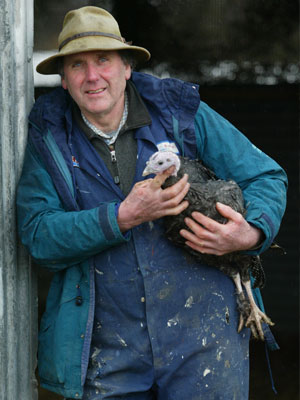
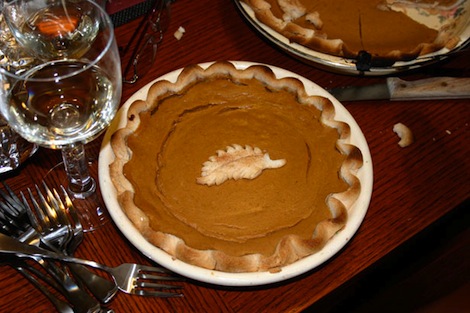




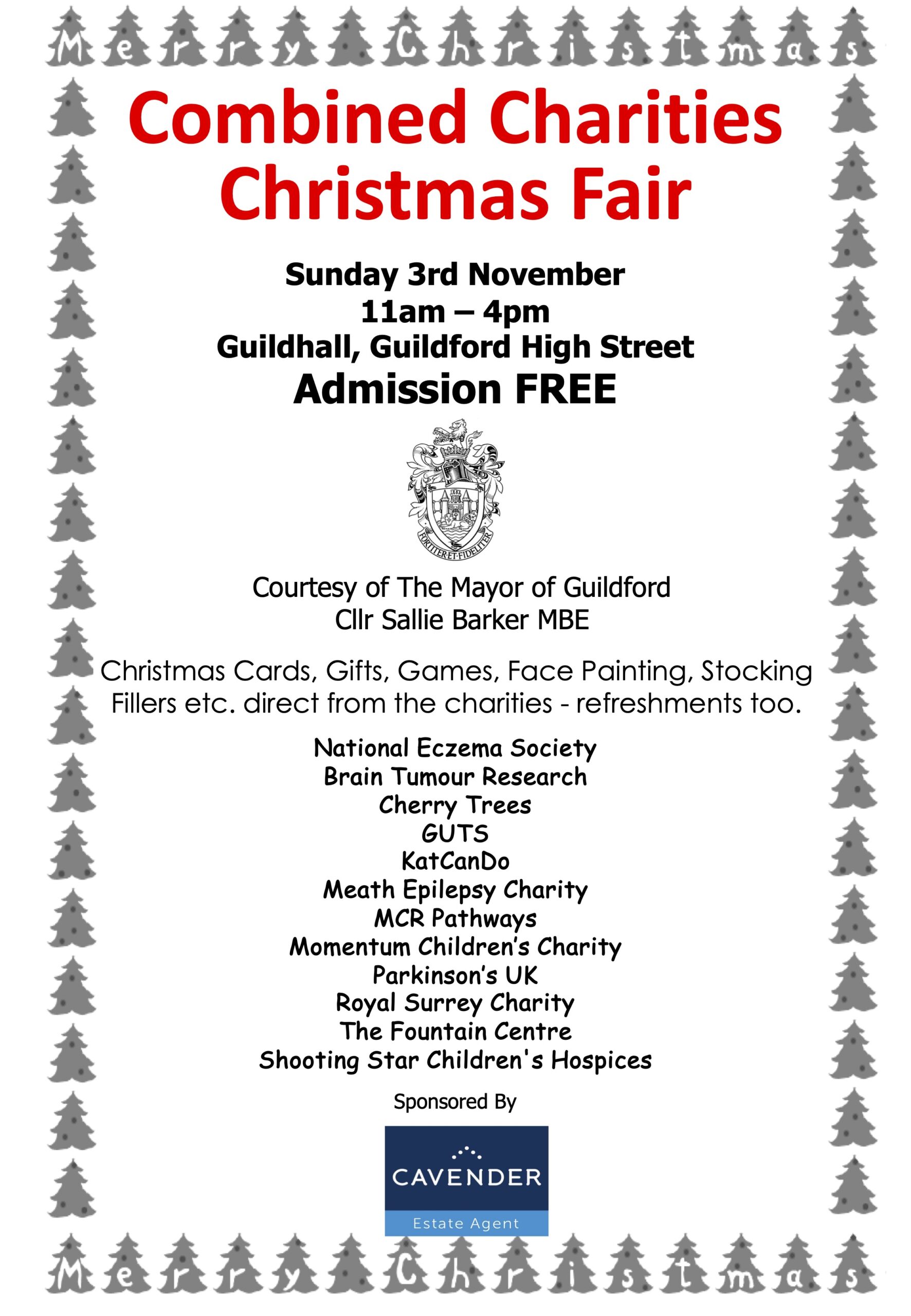



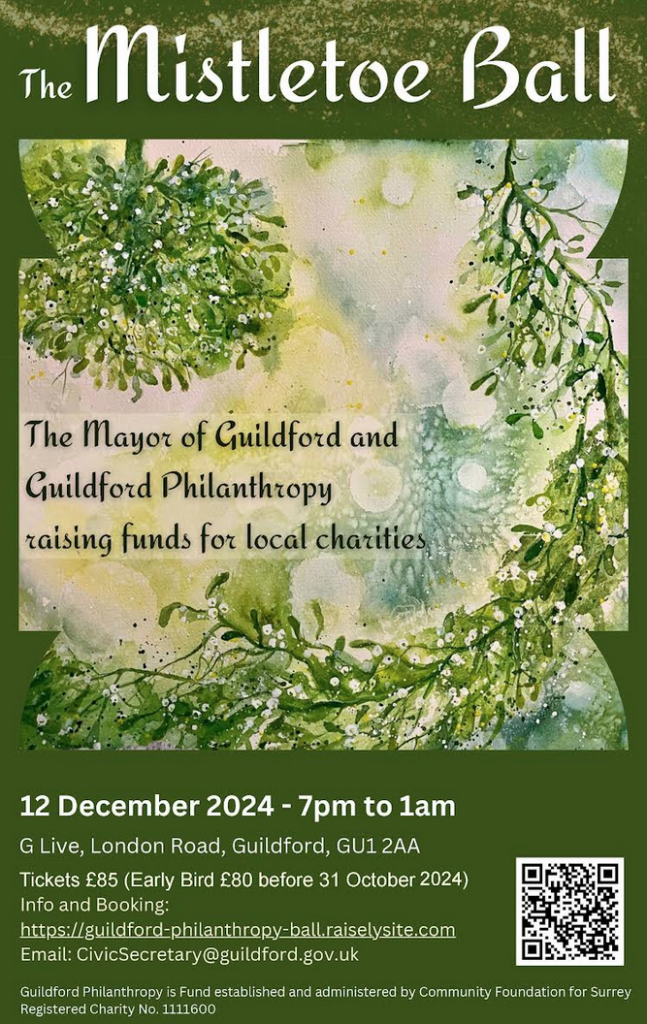




Pauline Surrey
November 14, 2012 at 7:05 pm
Thanks, Mary Ellen, I look forward to your next piece, this one was really interesting.
Suki Wessling
November 26, 2012 at 12:40 am
As an old American friend of Mary Ellen’s, I strongly second her opinion of pumpkin pie. Mine is made with half-n-half (do the British have this? Perhaps you call it light cream) and home-grown pumpkins.
Our turkey is stuff with a bread stuffing made from the bread recipe that my mother inherited from her Italian grandmother, so our family’s origin is also part of it.
Thanksgiving is truly a holiday that Americans can agree on, though of late we also have to think about what our nation did to the original inhabitants. So it’s not a holiday without its controversy. (And just imagine when the first teen in your family goes vegan and you have to figure out what to do on Thanksgiving, when, if it isn’t made of turkey, it’s probably got butter in it!).
It’s interesting for me to ponder: I have travelled to non-Christian countries over the Christmas period, but I’ve never been out of the US for Thanksgiving. Perhaps it is our most sacred of holidays.